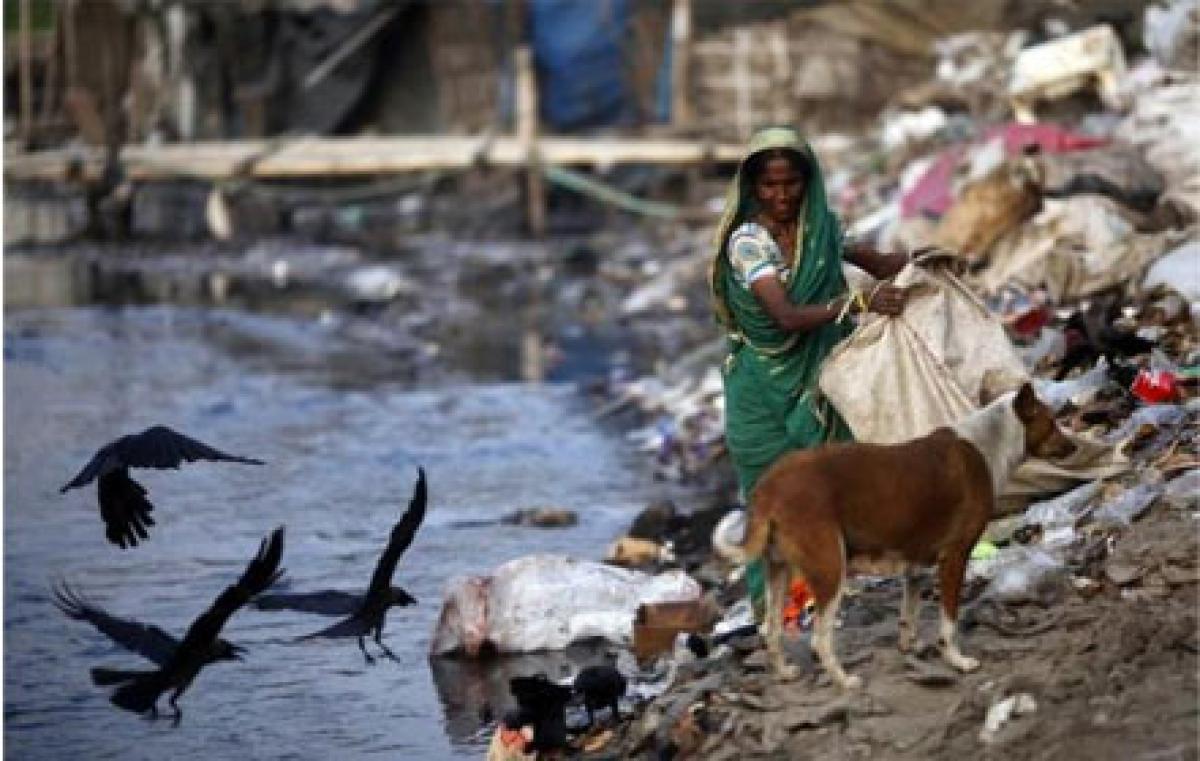Just In

x
Highlights
Bangladesh aims to cut its poverty rate to less than 14 percent by 2021 from 22.4 percent now, Prime Minister Sheikh Hasina said on Sunday, as the country sets it sights on becoming a middle-income nation.
 Bangladesh aims to cut its poverty rate to less than 14 percent by 2021 from 22.4 percent now, Prime Minister Sheikh Hasina said on Sunday, as the country sets it sights on becoming a middle-income nation.
Bangladesh aims to cut its poverty rate to less than 14 percent by 2021 from 22.4 percent now, Prime Minister Sheikh Hasina said on Sunday, as the country sets it sights on becoming a middle-income nation.Hasina was speaking at the opening of a two-day meeting where Bangladesh will seek up to $12 billion in assistance from funding partners to develop its ramshackle infrastructure.
"We set a target to reduce the rate of poverty below 14 percent by 2021, when we also expect to become a middle-income country," Hasina said, adding that Bangladesh had already reined in the figure to 22.4 percent, from 56.7 percent in 1991.
About 23 percent of the population of nearly 160 million falls below the poverty line, with a daily income of less then $2 a day.
About 40 representatives of bodies such as the World Bank, the Asian Development Bank (ADB), the International Monetary Fund, the U.S. Agency for International Development, the Department for International Development, the European Union and the Japan International Cooperation Agency (JICA) attended the event.
Wencai Zhang, Vice President of ADB, told reporters that the bank would provide $5.0 billion in assistance to Bangladesh over the next three years for plans including an industrial project and building an IT park.
Early in July, the World Bank upgraded Bangladesh to its category of lower middle income nations from its earlier status as a least developed country (LDCs).
Hasina said her government had chalked out a five-year plan to achieve its vision of middle-income status for Bangladesh.
One of the officials at the meeting, Kingo Toyoda, deputy director general of Japan's foreign affairs ministry, said his country would continue to cooperate with Bangladesh, but urged it to ensure the safety of visiting Japanese citizens.
A Japanese national in October became the second foreign national to be killed in the South Asian nation, with Islamic State claiming responsibility.
"We want to invest more and our entrepreneurs are enthusiastic," Toyoda said. "But the security of Japanese citizens is very important and we urge the government to ensure it."
Japan, which has contributed about $11.5 billion that includes loan, grants and technical assistance since Bangladesh's independence in 1971, has committed assistance of $4.89 billion over the next 4 to 5 years, and JICA is the country's largest bilateral development partner.

Next Story
More Stories
ADVERTISEMENT
© 2024 Hyderabad Media House Limited/The Hans India. All rights reserved. Powered by hocalwire.com







